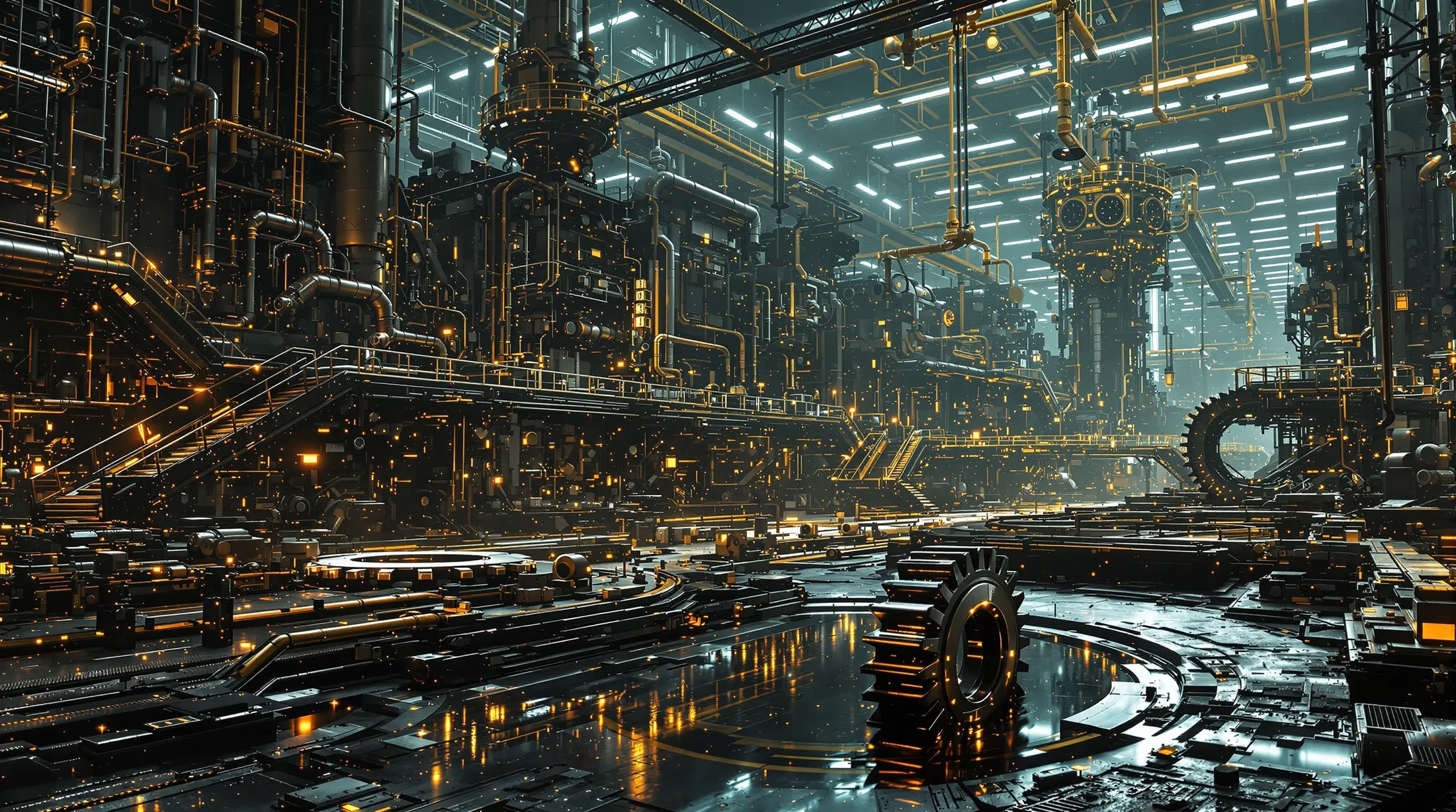Manufacturing Career Paths: Explore Your Future in the Industry
The manufacturing industry has transformed dramatically, offering exciting career opportunities that combine cutting-edge technology with traditional craftsmanship. Whether you’re a recent graduate or considering a career change, understanding the diverse pathways in manufacturing can help you make an informed decision about your professional future.
Understanding Manufacturing Career Paths
Today’s manufacturing environment extends far beyond traditional factory work, encompassing sophisticated technology, innovative processes, and diverse roles. From hands-on production positions to specialized engineering roles, the sector provides numerous entry points and advancement opportunities for professionals at all career stages.
Modern manufacturing has evolved significantly through the integration of automation, artificial intelligence, and sustainable practices. These advancements have created new job categories while transforming traditional roles, making the industry more dynamic and appealing to a broader workforce.
Overview of the Manufacturing Industry
The manufacturing sector generates approximately $2.3 trillion annually in the United States alone, employing over 12 million workers across diverse subsectors. This industry has evolved from labor-intensive production to highly automated smart manufacturing facilities.
- Key manufacturing subsectors:
- Automotive manufacturing
- Aerospace production
- Electronics manufacturing
- Pharmaceutical development
- Food processing
- Textile production
Types of Jobs in Manufacturing
| Production Floor Roles | Professional Roles |
|---|---|
|
– Production Line Workers – Quality Control Technicians – Engineers – Maintenance Technicians – Logistics Specialists |
– Process Improvement Specialists – Supply Chain Managers – R&D Scientists – Product Designers – IT Systems Specialists |
Skills and Education for Manufacturing Careers
Success in manufacturing careers requires a combination of technical expertise, practical skills, and adaptability to evolving technologies. Today’s manufacturing environment demands professionals who can navigate complex production systems while contributing to continuous improvement initiatives.
Essential Skills for Success
- Technical Skills:
- Mechanical aptitude
- Quality assurance knowledge
- Lean manufacturing principles
- Equipment proficiency
- Technical drawing interpretation
- Soft Skills:
- Clear communication
- Problem-solving abilities
- Commercial awareness
- Time management
- Adaptability to new technologies
Educational Pathways and Training
- Primary Career Pathways:
- Production
- Manufacturing Production Process Development
- Maintenance Installation and Repair
- Quality Assurance
- Logistics and Inventory Control
- Health Safety and Environmental Assurance
Community colleges and technical schools provide specialized programs in manufacturing technology, machining, welding, electronics, and industrial maintenance, delivering hands-on skills essential for entry and mid-level positions.
| Learning Format | Description |
|---|---|
| Apprenticeships | Paid, structured training combining classroom instruction with on-the-job experience under experienced mentors |
| Industry Partnerships | Custom training programs with educational institutions, including internships for practical experience |
| Professional Certifications | Credentials from MSSC, ASQ, and Association for Supply Chain Management validating specialized knowledge |
Many manufacturers support employee development through tuition assistance and continuing education programs, creating accessible pathways for career advancement while working. These opportunities allow professionals to enhance their qualifications and progress within the industry while maintaining employment.
Career Growth and Opportunities in Manufacturing
The manufacturing sector provides diverse advancement opportunities across multiple functional areas. Professionals can advance from entry-level positions to supervisory and management roles through demonstrated expertise and commitment to improvement. Career paths extend beyond production, encompassing process development, design, supply chain optimization, and strategic planning.
The industry’s digital transformation has created new career paths focused on technology integration, data analytics, and automated systems management. This evolution makes manufacturing particularly attractive for professionals seeking long-term stability while developing expertise in emerging technologies.
Advancement Opportunities
- Manufacturing Production Process Development Path:
- Design Engineer
- Manufacturing Technician/Engineer
- Industrial Engineer
- Process Improvement Technician
- Production Manager
- Labor Relations Manager
Organizations typically implement structured promotion pathways that recognize performance excellence while providing targeted training for advanced responsibilities. Cross-functional experience is increasingly valued, with professionals who understand multiple aspects of manufacturing positioned advantageously for senior roles.
Emerging Trends in the Manufacturing Industry
- Technological Innovations:
- Robotics integration
- Artificial intelligence applications
- Data analytics implementation
- IoT technology adoption
- Real-time performance monitoring
- Predictive maintenance systems
Sustainability has become a driving force in manufacturing, creating positions focused on eco-friendly processes, waste reduction, and circular economy principles. Additionally, reshoring initiatives are generating new domestic manufacturing jobs that combine traditional skills with advanced technological capabilities.
Technology and Innovation in Manufacturing Careers
Impact of Technology on Manufacturing Jobs
Technology’s influence on manufacturing employment creates a dynamic landscape of opportunities and challenges. While automation reduces the need for routine manual tasks, it generates positions requiring advanced technical expertise. Smart factories now employ specialists who:
- Program and maintain robotic systems
- Analyze production data and metrics
- Manage industrial networks
- Troubleshoot integrated systems
- Supervise automated equipment
The integration of Computer Integrated Manufacturing (CIM) systems exemplifies this evolution, demanding continuous skill development. Quality control has transformed from manual inspection to data-driven analysis using advanced sensing technologies. Similarly, maintenance roles now focus on predictive technologies that anticipate equipment failures. Rather than eliminating positions, technology is redefining manufacturing careers toward specialized technical roles that merge operational knowledge with digital literacy.
Innovative Career Paths in Manufacturing
| Role | Responsibilities |
|---|---|
| Digital Manufacturing Engineer | Develop and implement advanced production technologies |
| Manufacturing Data Analyst | Leverage big data for efficiency improvements |
| Additive Manufacturing Specialist | Design and oversee 3D printing operations |
| Industrial Robotics Programmer | Create and optimize automated system instructions |
| Environmental Compliance Specialist | Ensure ecological regulation compliance |
| Circular Economy Engineer | Design sustainable processes for material reuse |
Benefits of a Career in Manufacturing
Manufacturing careers offer remarkable stability and diverse opportunities across production, quality control, engineering, maintenance, and supply chain management. The sector’s recent digital transformation, accelerated by the pandemic, has created dynamic positions for professionals skilled in both traditional production and emerging technologies. These roles provide competitive compensation, clear advancement paths, and the satisfaction of creating products that impact daily life.
Job Stability and Security
- Exceptional stability during economic cycles
- Increased domestic production opportunities
- Average tenure exceeding 5 years
- Clear career progression pathways
- Transferable skills across manufacturing segments
- Growing demand for technical expertise
Competitive Salaries and Benefits
Manufacturing careers typically offer premium compensation packages, with production specialists, quality technicians, and maintenance professionals earning above-average wages. Specialized engineering and management positions command higher salaries reflecting their expertise levels.
- Comprehensive Benefits Package:
- Robust health insurance coverage
- Retirement savings with employer matching
- Tenure-based paid time off
- Tuition reimbursement programs
- Production performance bonuses
- Profit-sharing opportunities
- Wellness initiatives







